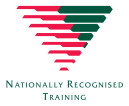Diploma of Business
BSB50120
BSB50120 - Diploma of Business
The business world is changing fast. Technology and AI are challenging the way we work, this course is about equipping you with the foundations for how to succeed in business and the strategies to be an agile business leader.
The Diploma of Business is the perfect course for those who are looking to become leaders in any form of business. The concepts you will learn and apply during your study will take your business career to the next level. This course has been tailor made in consultation with real businesses. What you will learn is practical, strategic, and you will immediately apply your new knowledge in the real world.
The Diploma Business will equip you with not only the tools and skills to be an amazing leader, but will gain even more confidence in managing your people and business resources, setting and managing budgets, persuasive communication and creating a culture of high-performance. The coursework is rigorous, the case studies are real, and you will be completing your assignments based on real world scenarios, but by doing so it will prepare you for your future career or business. It’s time to get started, take the next step in your career development today!
What you'll learn in the Diploma of Business
By completing the Diploma of Business, you will learn how people work and what motivates them, as well as how organisations operate. You will study financial management including planning, implementing and managing budgets. Together we will analyse business strategies and you will learn how to effectively manage and allocate resources (human and equipment) as well as how to develop and implement business policies for sustainability. This course will give you practical skills in managing people, setting budgets, persuasive communication and creating a culture of high-performance.
By the end of your diploma, you will have both developed and implemented the tools and strategies for developing and co-ordinating business, financial, and operational plans all while developing your interpersonal skills of emotional intelligence, problem solving, team building, and techniques for motivation to get the most from your teams performance.
With these tools and strategies at your disposal your career in business is set to take off!
Call us on (08) 9321 6307 to find out more


How will this course help me?
Your Diploma of Business will open doors in many different industries and careers. Whether you work in (or want to work in) mining or construction, retail or tourism, an office environment or onsite, the business skills that this qualification will teach you will be invaluable. Your diploma will prove to your current employer (or future employers) that you have the practical skills required of today’s business executives.
Job Roles include: Executive Officer, senior executives, administration manager, office manager, team leaders, business development managers, business manager, general manager (GM).
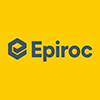
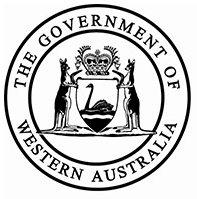
How Would You Like to Qualify as a
Business Officer?
Online
Our online Diploma of Business course is a great choice for learners wanting the flexibility to learn at their own pace in the comfort of their own space.
Prior Experience
If you've been working in projects you may qualify for Recognition of Prior Learning (RPL). This is a way for experienced people to fast track the qualification.
Looking for customised Corporate Training?
Scope is experienced at designing custom learning experiences and has partnered with businesses of all shapes and sizes across a range industries.
A Diploma of Business can be created and delivered customised to your organisation.
This will include integrating your values, policies, processes, frameworks as well using examples based on your industry.

Companies we’ve worked with include

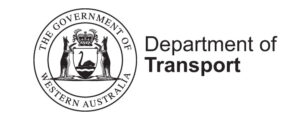
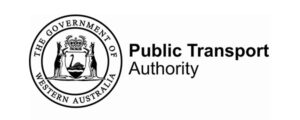
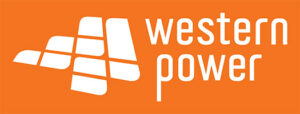
Diploma of Business Units
CORE uNITS
This unit describes the skills and knowledge required to develop critical and creative thinking skills in others within a workplace context.
The unit applies to individuals who are developing and coaching others, for whom critical thinking skills (including analysis, synthesis, and evaluation) are an important part of their job roles. This unit applies to individuals who are typically responsible for leading teams.
This unit describes the skills and knowledge required to undertake financial management in an organisation or work area. It includes planning and implementing financial management approaches and supporting and evaluating effectiveness of financial management processes.
The unit applies to managers in a wide range of organisations and sectors who have responsibility for the effective use of financial resources within work teams. They are responsible for ensuring that financial resources are managed in line with the financial objectives of the team and organisation.
This unit describes the skills and knowledge required to manage resources according to planned business strategies. It includes analysing resource requirements, developing resource plans, allocating resources, and reviewing and reporting on resource usage.
The unit applies to individuals with a role in allocating and monitoring the use of physical and/or human resources to meet defined business objectives.
This unit describes the skills and knowledge required to develop and implement workplace sustainability policies and to modify the policy to suit changed circumstances.
The unit applies to individuals with managerial responsibilities who undertake work developing approaches to create, monitor and improve strategies and policies within workplaces. These individuals also engage with a range of relevant stakeholders and specialists.
‘Sustainability’ in this unit refers to a broad approach that focuses on the minimisation of an organisation’s social, economic and environmental impact, as well as proactive value creation in these areas.
This unit describes the skills and knowledge required to lead communication in the workplace within any industry.
This unit has a specific focus on the communication skills required for team leaders with responsibility for other workers.
ELECTIVE UNITS
This unit describes the skills and knowledge required to develop and monitor the implementation of operational plans to support efficient and effective workplace practices and organisational productivity and profitability.
The unit applies to individuals who manage the work of others and operate within the parameters of a broader strategic and/or business plans.
This unit describes the skills and knowledge required to determine and manage project scope. It involves obtaining project authorisation, developing a scope management plan, and managing the application of project scope controls.
The unit applies to individuals responsible for managing and leading a project in an organisation, business or as a consultant.
This unit describes the skills and knowledge required to lead the development of a diverse workforce. It covers supporting and engaging with a diverse workforce to maximise the benefit of diversity to the organisation.
The unit applies to supervisors, team leaders, new and emerging managers who lead within a diverse workforce environment and exercise discretion and autonomy within a structured business context.
This unit describes the skills and knowledge required to lead and manage effective workplace relationships.
The unit applies to individuals in leadership or management positions who have a prominent role in establishing and managing processes and procedures to support workplace relationships. These individuals apply the values, goals and cultural diversity policies of the organisation. They use complex and diverse methods and procedures as well as a range of problem solving and decision making strategies, which require the exercise of considerable discretion and judgement.
This unit describes the skills and knowledge required to lead teams in the workplace and to actively engage with the management of the organisation.
The unit applies to individuals working at a managerial level who lead and build a positive culture within their work teams. At this level, work will normally be carried out using complex and diverse methods and procedures requiring the exercise of considerable discretion and judgement. It will also involve using a range of problem solving and decision-making strategies.
This unit describes the skills and knowledge required to identify signs and sources of strain on personal health and wellbeing (both physical and mental) within job roles and according to key performance indicators (KPIs).
The unit applies to individuals who operate with a high level of autonomy, have excellent communication skills and apply knowledge of organisational policies and relevant legislation.
This unit describes the skills and knowledge required to develop and use emotional intelligence to increase self-awareness, self-management, social awareness and relationship management in the workplace.
The unit applies to individuals who are required to identify, analyse, synthesise and act on information from a range of sources and who deal with unpredictable problems as part of their job role. These individuals may be responsible for leading a team or work area.
Looking for different units? Contact our team and we can discuss what other units may be available as well as if your previous experience can reduce the course requirements.

How long will it take to complete?
The great thing with competency based training is that completion of a course is based on your ability to demonstrate your ability to perform to industry standard. This allows you to complete at your own pace.
There are no exams in the course, it is very practical and based upon things you’re going to face in a project environment.
We provide students with the ability to complete the Diploma in Business over a one year period; however we find that the average time is between 6 to 9 months. During that time there is a large variance in the amount of time each student spends working on the qualification.
Give us a call, email, use the chat or whatever is easiest and we can give you an estimate based on your situation as well as how your experience may help you complete faster
What are the entry requirements?
There are no entry requirements into the Diploma of Business if you a computer and an internet connection you’re set.
Having said that we believe that learning is most valuable when applied. So it’s best to have a workplace or previous which you can use to apply your learning.
Our model isn’t geared for those coming straight out of school and find that most of our students come from one of two paths.
Ideally participants should hold a Certificate III in Business. However there are a number of other accepted qualifications from industry areas such as Business, Health and Safety etc. Many participants of this program are tertiary qualified professionals looking to migrate into a project role.
Many students enter this qualification without holding an existing qualifications. As the programs are designed based upon the work environment, experience within that environment is an acceptable point of entry. In regards to the Diploma of Business this may include but not limited to experience within an office environment, or another technical field, this may be either as a team member, supervisor or manager.


What Jobs Can I Get with a Diploma of Business?
The Diploma of Business conveys to employers that the holder has practically demonstrated the skills and knowledge to work effectively as a Team member as well as team leader. Furthermore a qualification from Scope Training advocates that the learner has demonstrated the ability to apply these skills in a work context, reassuring employers of job-readiness.
Job Roles include: Executive Officer, Senior Executives, Administration Manager, Office Manager, Team Leaders, Business Development Managers, Business Manager, General Manager (GM).

